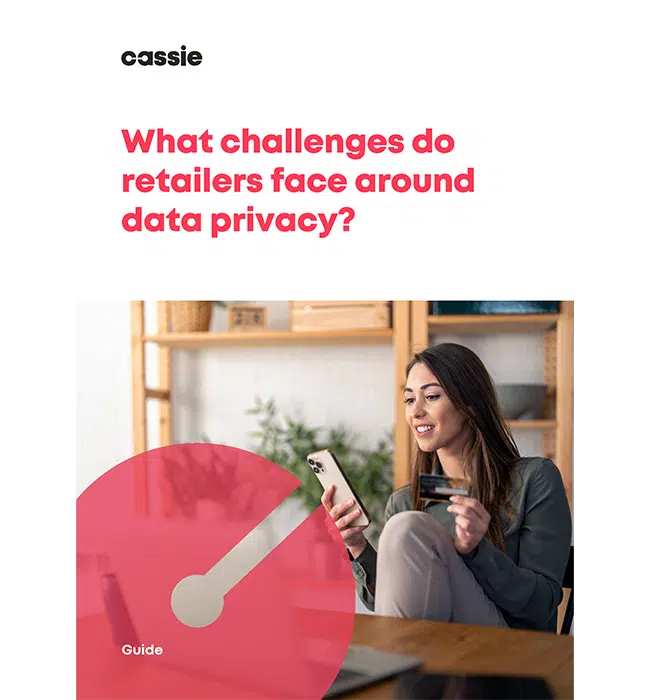A guide to navigating US privacy laws for retailers
Posted: December 29, 2023
Data privacy laws in the United States are becoming more complex, posing challenges for retailers who collect and process personal information.
Retail brands must stay informed and up-to-date as these laws evolve, otherwise they risk hefty fines and reputational damage. We‘ve already seen Sephora fined $1.2 million by the CCPA for failing to meet the new regulations.
The retail industry handles a vast amount of personal data, from customer information to payment details, which can be at risk if proper measures are not taken to ensure data privacy and security.
This blog post will delve into the evolving landscape of data privacy laws in the United States and what retail brands need to do to keep up.
Key US privacy laws impacting retailers and e-commerce:
General Data Protection Regulation (GDPR)
The GDPR is seen as the benchmark for data privacy legislation. And just because your business might be based in the US doesn’t mean you shouldn’t be minding the restrictions of the GDPR for your customers that visit from the EU.
GDPR is a robust data protection regulation governing data protection for organizations operating within the European Union and beyond. Since it came into effect in May 2018, GDPR has set the bar for global data privacy regulations. Failure to comply with GDPR can lead to significant penalties, including fines of up to €20 million or 4% of the company’s global revenue.
Since GDPR protects individuals’ data, organizations that handle such data must comply with its provisions. Businesses based in the US cannot neglect the GDPR; if they engage with consumers located in the EU, they need to abide by the regulations, which are arguably some of the most stringent around the world.
California Consumer Privacy Act (CCPA)
CCPA governs how businesses in California handle consumer data. CCPA requires businesses to disclose details of the data they’ve acquired and how it’s used to consumers. Consumers can request deletion of their data, object to its use, and opt-out of data sharing. Organizations operating within California or that process personal data of California residents must comply with CCPA.
Children’s Online Privacy Protection Act (COPPA)
COPPA protects children under the age of 13 as they interact with online platforms. COPPA requires websites aimed at children to obtain parental consent before collecting, using, or sharing their personal information.
Quebec Law 25
Whilst the Personal Information Protection and Electronic Documents Act (PIPEDA) is the overarching privacy legislation in Canada, the more recently introduced Law 25 in Quebec imposes stricter rules and is now seen as the benchmark.
If a business operates in Quebec, and/or you collect information from any of the 9 million residents, then they need to understand the implications of Law 25 as per the CAI guidelines on how businesses can collect, use, and disclose personal information from consumers in Quebec.
3 key privacy challenges in retail and eCommerce
Complying with privacy laws presents significant challenges for retail and e-commerce businesses:
Data collection and storage
For retailers, the scope of data collection is extensive and diverse. Retailers and ecommerce platforms routinely gather personal information, including names, addresses, purchase histories, and even browsing behaviors.
This wealth of data enables businesses to tailor services, predict consumer preferences, and enhance overall customer experiences.
However, the broad spectrum of collected data also raises privacy concerns, emphasizing the need for responsible data practices.
What are the risks?
The improper handling and storage of this vast trove of customer data pose significant risks to both businesses and consumers. The threat of data breaches, identity theft, and unauthorized access looms large.
Inadequate security measures can result in severe legal consequences and reputational damage. Businesses must implement data protection measures, including encryption, access controls, and regular security audits, to mitigate these risks and safeguard the privacy of their customers.

What challenges do retailers face around data privacy?
Read our retailer’s guide to discover how you can embrace data privacy to win customer trust and in turn, drive revenue.
In this guide, you will learn:
- The business and brand implications of not enacting a good privacy strategy
- What privacy practices you should adopt to help consumers feel in control of their data
- What a Consent and Preference Management platform is and why it’s the answer to your problems
Third-party relationships
Collaboration with third-party vendors is integral to the efficiency and scalability of retail and e-commerce operations. From payment processors to logistics partners, businesses often rely on external entities to streamline various aspects of their processes.
However, this collaboration introduces a new dimension of privacy challenges. Sharing sensitive customer data with third parties necessitates a thorough examination of the practices and policies of these external partners.
What are the risks?
Effectively managing privacy risks in third-party relationships requires a strategic and proactive approach. Businesses must establish stringent contractual agreements that outline data handling and security expectations.
Conducting thorough due diligence on the privacy practices of third-party vendors is essential, as is implementing ongoing monitoring mechanisms. By taking these precautions, businesses can mitigate the risks associated with third-party relationships, ensuring the privacy and security of customer data throughout the supply chain.
Consent and transparency
User consent is the cornerstone of ethical data processing. Obtaining explicit consent from customers before collecting and processing their personal information is not only a legal requirement but also a fundamental aspect of building trust.
Businesses should implement user-friendly mechanisms for obtaining and managing consent, empowering consumers to make informed decisions about the use of their data.
What are the risks?
Transparent communication is key to cultivating trust. Retailers must adopt strategies that enable clear and open communication regarding data usage.
This includes developing easily understandable privacy policies, providing accessible information about data collection practices, and utilizing user interfaces that empower customers to control their privacy settings.
By prioritizing transparency, businesses can establish and maintain strong relationships with their customers based on trust and responsible data management.
Best practices for compliance
To navigate US privacy laws in retail and e-commerce effectively, businesses should implement the following best practices:
Data minimization
Retailers must adopt a data minimization strategy that involves collecting only information necessary for the transactions and data handled by the business.
Privacy by design
Privacy by design ensures that every part of an organization is designed with privacy in mind. Organizations should ensure that they integrate privacy into every business process, product design, and service offered.
Employee training and awareness
Employees are the backbone of privacy compliance. Companies must train their staff and raise awareness of data privacy concerns. This includes identifying and mitigating privacy risks and complying with applicable privacy laws.
Robust consent management platforms
Businesses should invest in technology that can centrally manage consent to avoid litigation challenges further down the line. Collecting such vast amounts of data requires a platform that can accurately store and distribute consent data across devices, domains and systems, with complete audit trails to demonstrate compliance.
Many brands simply use the consent management tools built into systems they already use, like their CRM, however, this presents new challenges like lack of functionality and inability to integrate with wider tech stacks. By opting for a comprehensive consent management platform, companies can activate global compliance, with advanced customization and full activation across all systems.


